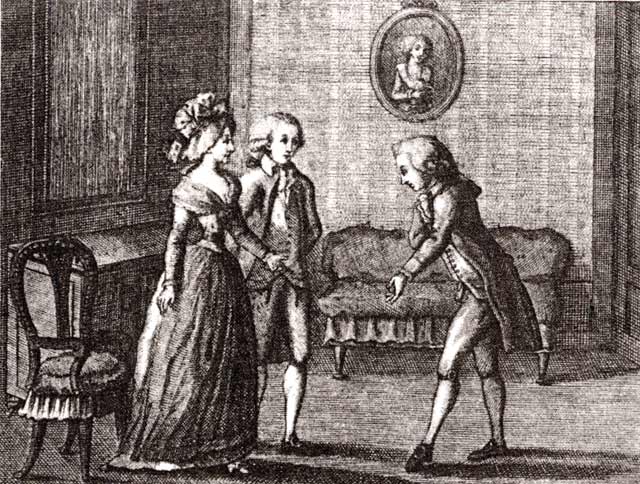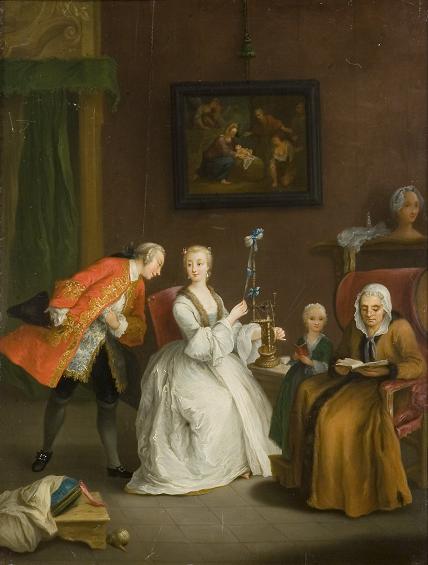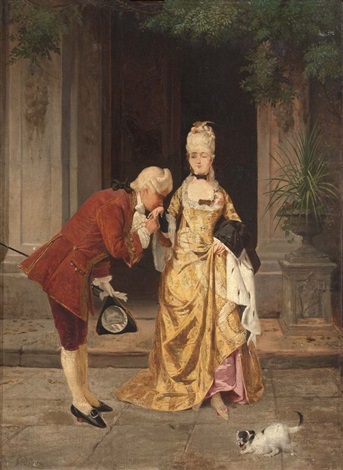
cicisbeo [chee-chiz-bey-oh or, older use, si-sis-bee-oh; Italian chee-cheez-be-oh] ExamplesWord Origin noun, plural ci·cis·be·i [chee-chiz-bey-ee or, older use, si-sis-bee-ee; Italian chee-cheez-be-ee] /ˌtʃi tʃɪzˈbeɪ i or, older use, sɪˈsɪs biˌi; Italian ˌtʃi tʃizˈbɛ i/. (esp. in Italy during the 17th and 18th centuries)
- an escort or lover of a married woman.
Origin of cicisbeo From Italian Dictionary.com Unabridged Based on the Random House Unabridged Dictionary, © Random House, Inc. 2019 Examples from the Web for cicisbeo Historical Examples of cicisbeo
Heretofore, he had shunned everything that could secure for him the reputation of a cicisbeo.
Marion Harland
Gozzi means that he had assumed the rle of Cicisbeo to Mme. Ricci.
The Memoirs of Count Carlo Gozzi
Count Carlo Gozzi
Love was the great game; every woman had lovers, every married woman openly flaunted her cicisbeo or cavaliere servente.
The Venetian School of Painting
Evelyn March Phillipps
Mme Boursier, knowing the poverty of her paramour, had paid him as her cicisbeo, squandering upon him her children’s patrimony.
Victor MacClure
It must be owned the Lady Louise had some excuse for a measure that seemed to have amazed and horrified her cicisbeo.
Marion Harland
British Dictionary definitions for cicisbeo cicisbeo noun plural -bei (-ˈbɛːi)
- the escort or lover of a married woman, esp in 18th-century Italy
Word Origin for cicisbeo C18: Italian, of uncertain origin Collins English Dictionary – Complete & Unabridged 2012 Digital Edition © William Collins Sons & Co. Ltd. 1979, 1986 © HarperCollins Publishers 1998, 2000, 2003, 2005, 2006, 2007, 2009, 2012 Word Origin and History for cicisbeo n.
1718, from Italian cicisbeo “the recognized gallant of a married woman.” Perhaps from older French chiche beau “little man,” or from Venetian dialect cici “the chattering of women” (imitative, attested in 18c.).
Online Etymology Dictionary, © 2010 Douglas Harper
 Liberal Dictionary English Dictionary
Liberal Dictionary English Dictionary


